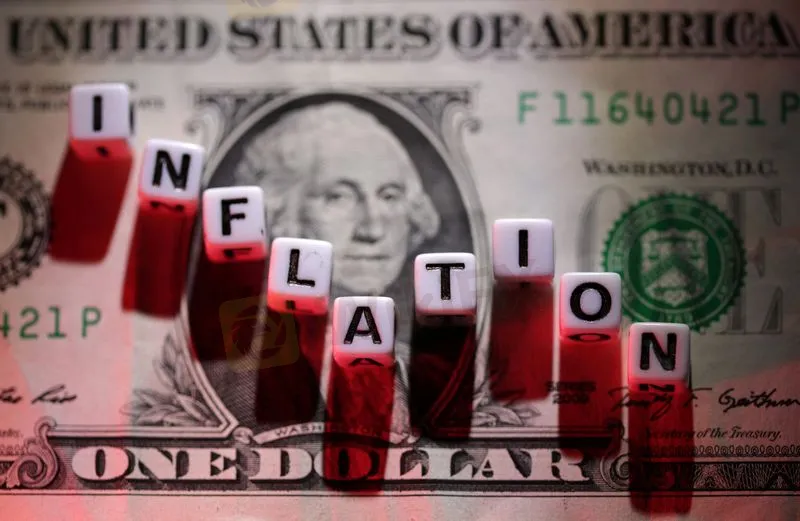简体中文
繁體中文
English
Pусский
日本語
ภาษาไทย
Tiếng Việt
Bahasa Indonesia
Español
हिन्दी
Filippiiniläinen
Français
Deutsch
Português
Türkçe
한국어
العربية
Banking body BIS urges decisive wave of global rate hikes to stem inflation
Abstract:“The key for central banks is to act quickly and decisively before inflation becomes entrenched,” Agustín Carstens, BIS general manager, said as part of the body's post-meeting annual report Annual Economic Report published on Sunday.

The world's central bank umbrella body, the Bank for International Settlements (BIS), has called for interest rates to be raised “quickly and decisively” to prevent the surge in inflation turning into something even more problematic.
The Swiss-based BIS has held its annual meeting in recent days, where top central bankers met to discuss their current difficulties and one of the most turbulent starts to a year ever for global financial markets.
Surging energy and food prices mean inflation in many places is now its hottest in decades. But the usual remedy of ramping up interest rates is raising the spectre of recession, and even of the dreaded 1970s-style “stagflation”, where rising prices are coupled with low or negative economic growth.
“The key for central banks is to act quickly and decisively before inflation becomes entrenched,” Agustín Carstens, BIS general manager, said as part of the body's post-meeting annual report Annual Economic Report published on Sunday.
Carstens, former head of Mexico's central bank, said the emphasis was to act in “quarters to come”. The BIS thinks an economic soft landing - where rates rise without triggering recessions - is still possible, but accepts it is a difficult situation.
“A lot of it will depend on precisely on how permanent these (inflationary) shocks are,” Carstens said, adding that the response of financial markets would also be crucial.
“If this tightening generates massive losses, generates massive asset corrections, and that contaminates consumption, investment and employment - of course, that is a more difficult scenario.”
Graphic: Inflation palpitations -

World markets are already suffering one of the biggest sell-offs in recent memory as heavyweight central banks like the U.S. Federal Reserve - and from next month the ECB - move away from record low rates and almost 15 years of back-to-back stimulus measures.
Global stocks are down 20% since January and some analysts calculate that U.S. Treasury bonds, the benchmark of world borrowing markets, could be having their biggest losing first half of a year since 1788.
CREDIBILITY
Carstens said the BIS's own recent warnings about frothy asset prices meant the current correction was “not necessarily a complete surprise”. That there hadn't been “major market disruptions” so far was also reassuring, he added.
Part of the BIS report published already last week said that the recent implosions in the cryptocurrency markets were an indication that long-warned-about dangers of decentralised digital money were now materialising.
Those collapses aren't expected to cause a systemic crisis in the way that bad loans triggered the global financial crash. But Carstens stressed losses would be sizeable and that the opaque nature of the crypto universe fed uncertainty.
Graphic: Central bank digital currencies -

Returning to the macro economic picture, he added that the BIS didn't currently expect a period of widespread stagflation to take hold.
He also said that though many global central banks and the BIS itself had significantly underestimated how quick global inflation has spiralled over the last six to 12 months, they weren't about to lose hard-earned credibility overnight.
“Yes, you can argue a little bit here about an error of timing of certain actions and the responses of the central banks. But by and large, I think that the central banks have responded forcefully in a very agile fashion,” Carstens said.
“My sense is that central banks will prevail at the end of the day, and that would be good for their credibility.”
For more Forex news, please download WikiFX- the Global Forex Regulatory Inquiry APP.
Disclaimer:
The views in this article only represent the author's personal views, and do not constitute investment advice on this platform. This platform does not guarantee the accuracy, completeness and timeliness of the information in the article, and will not be liable for any loss caused by the use of or reliance on the information in the article.
Read more

Why Fed Keeps Interest Rates Unchanged, How Does It Affect To Forex Market?
Fed keeps interest rates at 4.25%–4.50%, impacting forex market. Dollar may rise as tariffs loom. Explore why rates unchanged and forex effects.

Do Tariffs Refueling Inflation? Understanding the Connection
Investigate how tariffs impact inflation. Learn how trade barriers influence prices and the broader economic landscape.

Will Trump's Trade Policies Fuel Inflation? BlackRock Warns of Economic Risks
Bitcoin and crypto prices plummet as recession fears and inflation warnings shake markets. Experts warn of prolonged economic challenges ahead.

How Will Central Bank Digital Currencies Could Shape Everything?
Central bank digital currencies (CBDCs) could reshape financial stability, addressing inflation, banking risks, and monetary policy challenges.
WikiFX Broker
Latest News
How Crypto Trading Transforms FX and CFD Brokerage Industry
UK would not hesitate to retaliate against US tariffs - No 10 sources
FCA Warns Against 10 Unlicensed or Clone Firms
CySEC Warns Against 14 Unlicensed Investment Websites
Top Currency Pairs to Watch for Profit This Week - March 31, 2025
Will natural disasters have an impact on the forex market?
Philippines Deports 29 Indonesians Linked to Online Scam Syndicate in Manila
Navigating the Intersection of Forex Markets, AI Technology, and Fintech
Exposed: Deceptive World of Fake Trading Gurus – Don’t Get Fooled!
AI-Powered Strategies to Improve Profits in Forex Trading
Currency Calculator







